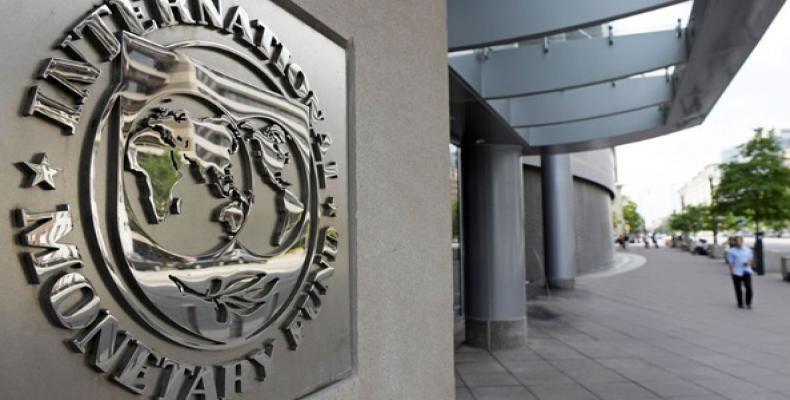Quito, April 12 (RHC)-- An Ecuadorean judge has denied the Ombudsman's office request to access public information regarding the conditions and terms of the new agreement reached between Lenin Moreno’s government and the International Monetary Fund (IMF) on March 11 for $4.2 billion.
"We initiated this request so that everything that was negotiated in the new IMF deal can be transparent to the Ecuadorean people,” stated Director of the Ombudsman's Office Harold Burbano.
The request was sent on February 27th, six days after the Staff-level agreement was reached and announced. However, it was more than a month later and after the first disbursement took place on March 15, that a public hearing was held Tuesday between the Ministry of Finance and Economy and the Ombudsman’s office.
After the deliberation of both sides, judge Lilia Aguilar agreed with the defendants saying that the information published on March 21 already covers all the areas that involve the agreement. The documents that were made public are Ecuador’s Intent Letter, the IMF’s staff analysis (Article IV), and a Letter of International Support.
The Director of the Center for Economic and Social Rights (CDES), Pablo Iturralde, told teleSUR, that these documents published are specifically not the signed agreement, as the Intent letter is just Ecuador’s unilateral declaration of will, the IMF’s Article IV is a financial review, and three of the four documents are in English making them inaccessible for the majority of the Ecuadorean people.
“Based on past and foreign experiences, there has to be an actual agreement where all the conditionalities will be expanded with a time table and short-long term objectives,” added Iturralde, whose organization presented a notion of Amicus Curiae, to assist during the trial.
The access of information request is protected under article 91 of Ecuador’s Constitution, as it guarantees access to public information “when it has been expressly or tacitly denied, or when the one provided is not complete or reliable”, the article even assures that it will be interposed “even if the refusal is based on a secret or confidential nature.” For the local judge, however, the Ministry of Finance and Economy did not violate this article.
“An IMF deal cannot be unilateral so if there isn't a signed document, there was at least a verbal agreement or handshake between the institution and the government, and those terms have to be made public,” declared Iturralde.
As of Tuesday, the Ombudsman's office has appealed to a higher instance and a new hearing will be held on Friday, April 12 in the provincial court. If the result is the same, the organizations will initiate procedures to contest it in a Constitutional court as the whole IMF agreement process is tainted with unconstitutional arrangements.
The main one, which will be the base for the demand, is the violation of article 419 and 439 which states that the National Assembly had to approve the international agreement as it affects national laws and economic policy, and following the Constitutional Court had to ratify it, which neither of the two institutions did.
Ecuador censors request to access all terms and conditions of IMF deal


